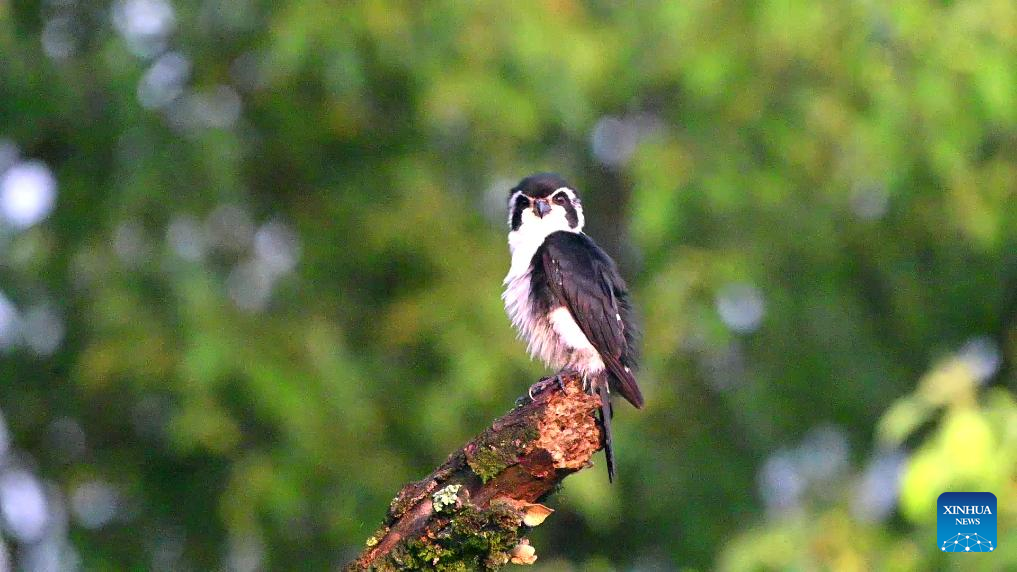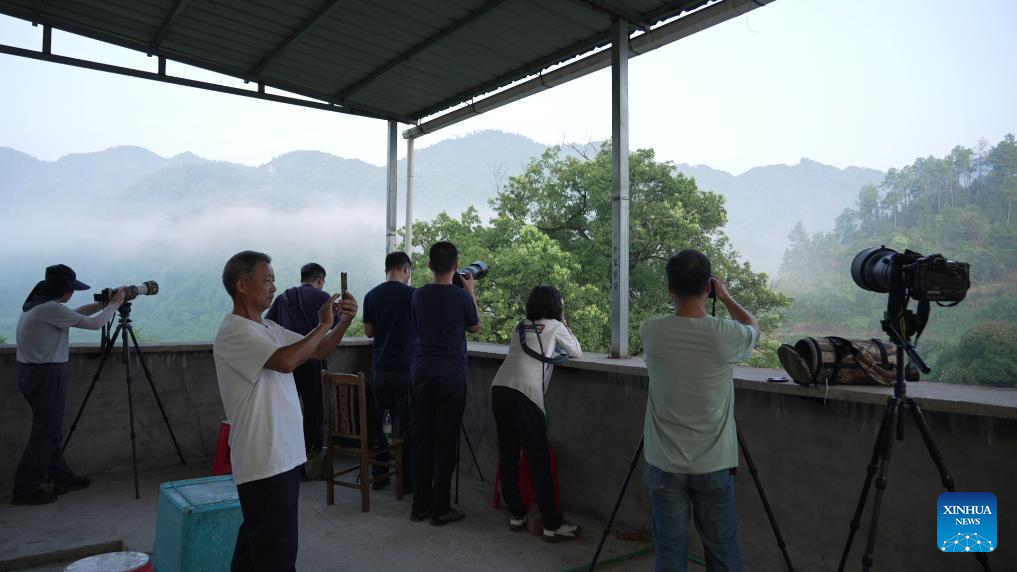
This photo shows a pied falconet in Wuyuan County, east China's Jiangxi Province, Aug. 9, 2024. (Xinhua)
NANCHANG, Aug. 20 (Xinhua) -- Yu Zhibiao's three-story house may appear ordinary and slightly weathered, but its rooftop has become a hidden gem, attracting bird enthusiasts from around the world eager to observe rare species.
Yu lives in Xiaoqi Village in Wuyuan County in east China's Jiangxi Province. Celebrated for its vibrant ecological environment, Wuyuan boasts a forest coverage rate of 83.67 percent and the vegetation coverage in grasslands exceeding 90 percent, creating an ideal habitat for wild birds.
Official data shows that the number of wild bird species in the county has risen from 286 in 2012 to 356 in 2023. This includes the critically endangered blue-crowned Laughingthrush and the pied falconet, which is under second-class national protection.
In 2005, a shutterbug from neighboring Zhejiang Province spotted several pied falconets nesting in a camphor tree near Yu's home. The pied falconet, often called the "flying panda" for its panda-like face, is a favorite among bird photographers.
With Yu's permission, the photographer captured several close-up shots of these elusive birds from the rooftop. After sharing these photos online, Yu's rooftop quickly gained popularity within the birding community.
At peak times, Yu hosts nearly 10,000 photographers and bird watchers worldwide each year. His roughly 100-square-meter rooftop is constantly abuzz with the sounds of bird calls, camera shutters and excited exclamations.
To improve the experience for the visitors, Yu reinforced the rooftop, added railings and built a rain shelter to ensure a safe and comfortable viewing area.
As more bird enthusiasts flock to his home, Yu, who once made a living by growing tea, transformed his house into a thriving bed and breakfast (B&B). He has also gladly embraced his new role as a guide, sharing information about birds with visitors and helping them discover the best viewing spots.
Inspired by Yu's success, villagers are now eagerly engaging in the birding economy. Some converted their rooftops into viewing platforms, others opened B&Bs, and many became birdwatching guides.
Birdnet, China's premier web portal for wild bird photography, has featured the village as the liaison station of Wuyuan, with Yu as the head.
A bird enthusiast from Zhejiang's Ningbo City visited the village over eight times in a single year. "I once photographed more than 10 bird species in just half a day," he recalled. "Birdwatching and photography are also great ways to relax."
Whereas birdwatchers once stayed just one day, many now arrive early to survey the terrain and adjust their equipment, with some staying several days to capture the perfect shot, Yu noted.
"It might seem that the location of our houses is the key to our benefits, but the real reason is the overall improvement in local ecological conditions, which has benefited everyone here," he said. ■

This photo shows Yu Zhibiao taking pictures of bird photographers in Wuyuan County, east China's Jiangxi Province, Aug. 9, 2024. (Xinhua/Yu Gang)



